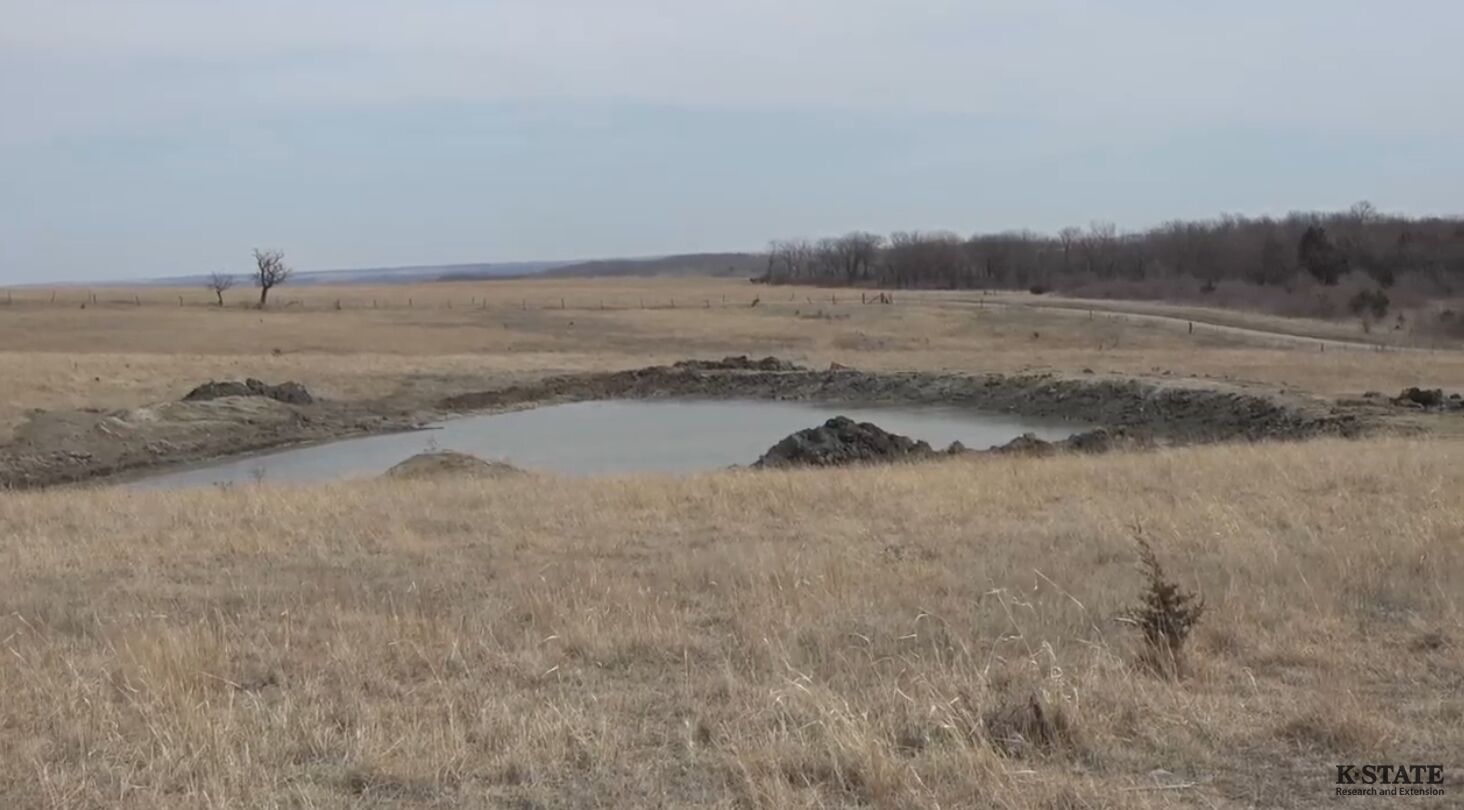In this video from K-State Research and Extension, Kansas State University soil scientist Deann Presley says dry weather in Kansas presents an opportunity to work on farm ponds.
“Many of our ponds need periodic cleaning out of the old sediment that might get brought down by livestock or natural processes,” she said.
She urges landowners to consider draining their ponds, scraping the bottom and compacting the soil before filling them up again.
Presley suggests a minimum 30% clay in the soil, though she adds, “40% is even better.” Alternate products that can be used include sodium chloride, rock salt, soda ash or bentonite; K-State’s Feb. 17 Agronomy eUpdate lists each product with suggested application rates.
Producers should then compact the soil with a sheepsfoot roller.
“The importance of compaction cannot be over-stated,” Presley said. “Many people often think, ‘I have enough clay in the soil; I’ll roll on it for a while and it will be okay.’ But the sheepsfoot roller is important” for proper compaction of the soil.
More information is available in K-State’s Feb. 17 Agronomy eUpdate or from local extension offices in Kansas.




